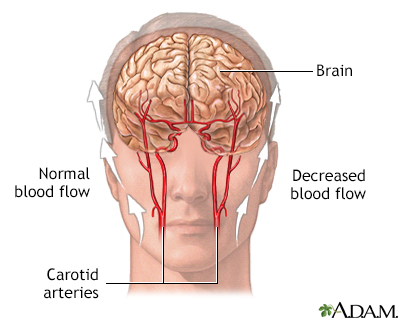Health exams for: #AGEGROUP#
The following exams, tests, and procedures are recommended for #AGEGROUPLOWER#.#FEMALETEXT#
Select a link from the list below to learn how and why each test is performed, as well how to prepare for it.

The following exams, tests, and procedures are recommended for #AGEGROUPLOWER#.#FEMALETEXT#
Select a link from the list below to learn how and why each test is performed, as well how to prepare for it.
A transient ischemic attack (TIA) is caused by a temporary state of reduced blood flow in a portion of the brain. This is most frequently caused by tiny blood clots that temporarily occlude a portion of the brain. A primary blood supply to the brain is through two arteries in the neck (the carotid arteries) that branch off within the brain to multiple arteries that supply specific areas of the brain. During a TIA, the temporary disturbance of blood supply to an area of the brain results in a sudden, brief decrease in brain function.
Review Date: 4/29/2023
Reviewed By: Joseph V. Campellone, MD, Department of Neurology, Cooper Medical School of Rowan University, Camden, NJ. Review provided by VeriMed Healthcare Network. Also reviewed by David C. Dugdale, MD, Medical Director, Brenda Conaway, Editorial Director, and the A.D.A.M. Editorial team.



